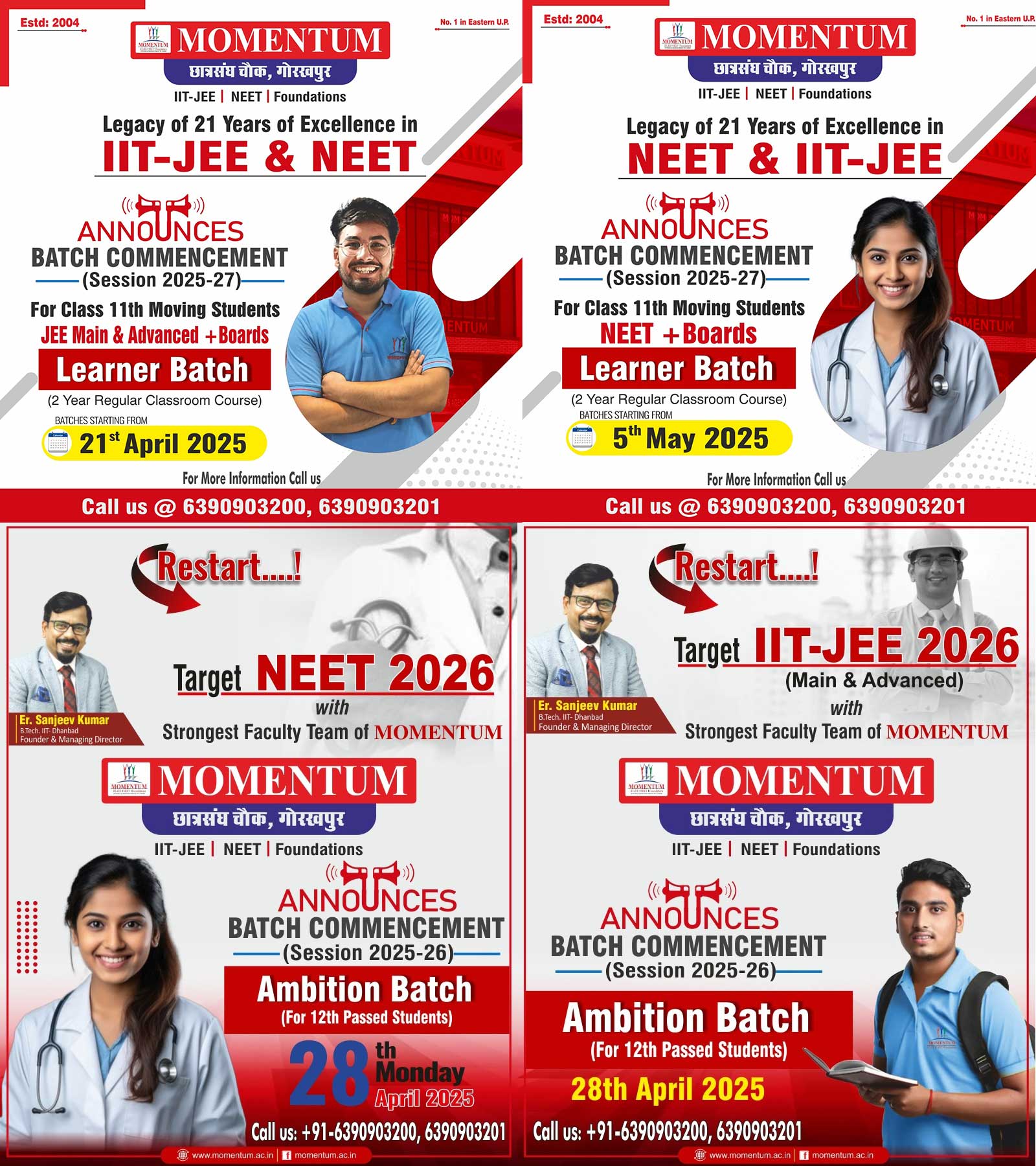How To Combine The Best Study Material For JEE Main With Smart Study Strategies

Cracking JEE Main requires more than hard work—it demands a strategic blend of high-quality study materials and smart study techniques. When the right resources are combined with effective learning methods, students can not only cover the vast syllabus but also build the problem-solving skills necessary for success. Using the Best Study Material for JEE Main strategy provided by Momentum, you can turn the intimidating process of preparing for JEE Main into a manageable and effective one.
Understanding the Syllabus and Exam Requirements
The first step in successful JEE Main preparation is a comprehensive understanding of the exam pattern and syllabus. The exam encompasses subjects such as Physics, Chemistry, and Mathematics, each requiring a deep grasp of fundamental concepts along with the ability to apply these ideas in problem-solving. By breaking down the entire syllabus into manageable sections, students can better allocate their study time and focus on areas that offer the highest return on investment.
Choosing Quality Study Materials
Selecting the Best Study Material for JEE Advanced is critical to building a strong foundation for JEE Main. The best study resources are those that provide clear explanations of concepts, offer a variety of examples, and include numerous practice problems to enhance understanding. High-quality textbooks and reference materials that cover the entire syllabus in a structured manner are essential. Additionally, digital resources such as online lectures, interactive tutorials, and practice quizzes can supplement traditional textbooks and help clarify difficult topics. The focus should be on using resources that are known for their accuracy and depth, without relying on excessive sources that may lead to confusion or information overload.
Designing a Balanced Study Plan
A balanced study plan is the backbone of effective preparation. Once the best study materials have been identified, it is important to create a realistic schedule that covers all topics while also allowing time for revision and practice. A structured plan should include daily study sessions dedicated to each subject, ensuring that no area is neglected. Allocating time blocks for learning new concepts, solving problems, and reviewing previously studied topics is crucial for long-term retention. By dividing the syllabus into smaller, manageable segments, students can steadily progress without feeling overwhelmed. A well-planned routine not only improves focus but also reduces the stress that comes with last-minute cramming.
Incorporating Active Learning Strategies
Active learning is a key component of smart study strategies. Simply reading through textbooks or watching lectures is not enough to excel in an exam as challenging as JEE Main. Techniques such as self-quizzing, summarizing topics in one’s own words, and teaching concepts to peers help reinforce understanding and improve retention. Regularly solving practice problems and engaging in interactive study sessions can lead to deeper comprehension and better recall of information. Active learning also involves reviewing mistakes from practice tests and understanding the reasoning behind correct answers.
Utilizing Regular Practice and Self-Assessment
Regular practice is essential for mastering the application of concepts in JEE Main. Completing practice questions and solving previous years’ papers are excellent ways to familiarize oneself with the exam format and improve speed. Setting aside time for full-length practice tests under timed conditions simulates the actual exam environment and helps in honing time management skills. After each practice session, a thorough self-assessment is vital. Analyzing performance to identify weak areas and understanding why certain mistakes were made will enable students to focus their revision more effectively.
Adapting and Refining Your Study Plan
Flexibility is important when it comes to effective exam preparation. As students progress in their studies, it is essential to adapt and refine the study plan based on ongoing performance and changing priorities. Regular self-assessment and feedback can provide insights into which strategies are working and which may need to be adjusted. The ability to modify the plan—whether by reassigning time to tougher topics or incorporating new study techniques—ensures that preparation remains dynamic and responsive to individual needs. This continuous refinement ultimately leads to a more robust and effective study routine.
Finally, combining the best study material with smart study strategies is a proven formula for success. By understanding the syllabus, selecting high-quality resources, designing a balanced study plan, incorporating active learning, and leveraging technology, students can significantly enhance their preparation. Regular practice and ongoing self-assessment ensure that the learning process is efficient and adaptive, leading to improved performance on exam day. With dedication, structured planning, and a commitment to continuous improvement, the journey toward cracking JEE Main becomes not only achievable but also rewarding.






upsk.jpg)

0rmh.jpg)
dxiy.png)
sxl1.jpg)



qciu.jpg)

hbej.jpg)

d2ia.jpg)

